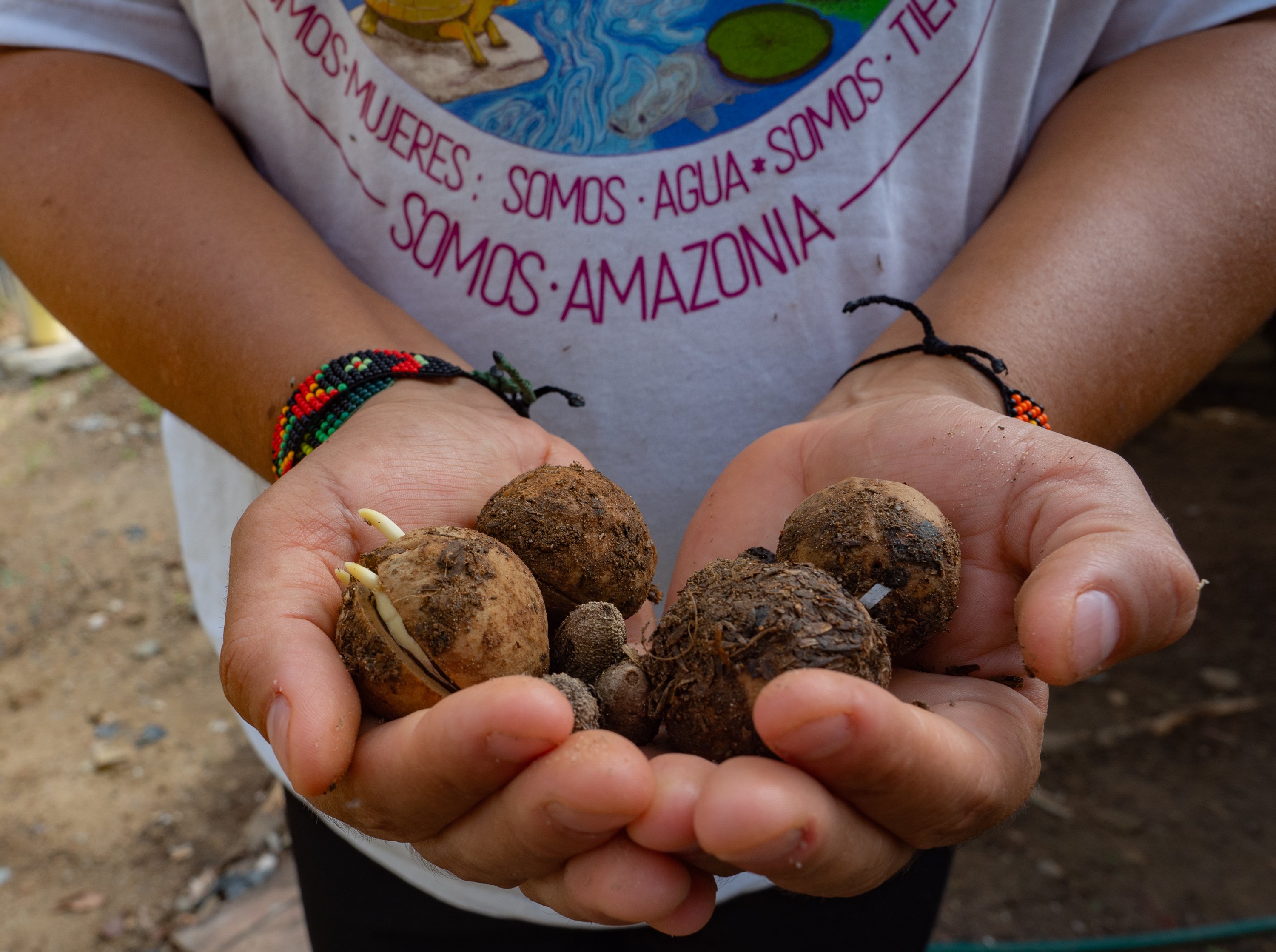In Colombia, fighting for the future of the Amazon includes standing up for the lives and rights of women.
“I come from a campesino family, and my mother taught me to walk barefoot. She said ‘put down your roots and plant yourself like a tree where you were born and where you belong.’” says Magaly Belalcázar Ortega. “She taught us how to defend the land and water and trees.”
Belalcázar Ortega took her mother’s teachings to heart and added a dimension—defending the rights of women.
She lives in Colombia’s Amazonian department of Caquetá, where cattle ranching, mining, and coca production—as well as coca-eradication efforts—have devastated the rainforest. She is a member of the Caquetá Women’s Platform, a collective of women’s organizations devoted to protecting women’s rights and the environment.
“Previous governments have focused on extracting resources from the Amazon and on carrying out anti-drug policies that have been harmful to the environment,” she says. The current administration has a more protective approach, but business interests are as committed as ever to turning a profit, and the losses mount.
The Amazon’s importance to the health and future of the planet can’t be overstated. Neither can its beauty, complexity, and vulnerability. The notion that it is there for the taking—that the quest for power and money trumps all—reflects traditional male attitudes, says Belalcázar Ortega. And so does the treatment of women who try to put a stop to the destruction.
“We have traveled to many parts of the Amazon, and nowhere have we found a woman with a chainsaw in her hands, cutting down trees, or spreading toxic chemicals on the land. We see women growing food and collecting seeds. Most women here are interested in conserving the Amazon—its seeds, trees, water, and life. But women with these views can’t get to the table where decisions are made.”
Protecting trees, rivers, and the rights of women
The Platform consists of about 20 collectives that are pursuing a host of projects. Some focus on advocacy, some on assisting survivors of gender-based violence, some on helping women improve their incomes and financial independence—but all see their work as intimately connected to the fight to save the rainforest.
“Part of our work involves restoring damaged lands,” says member Neruda Díaz Martínez. “Some of the Platform members are focused on collecting and planting native seeds.”
“We raise and sell vegetables using organic methods,” adds member Sileny Sierra Olaya. “We make our own fertilizer.”
On the advocacy front, says Belalcázar Ortega, “We make sure the experience and perspective of women and girls is taken into account in the design of public policy. When it comes to implementation, these considerations are usually ignored, so we have to keep fighting.”
After the peace process that ended the armed conflict between government and key guerrilla forces in 2016, each region of the country created an institution to continue the peace-building process. The Platform was elected to the Caquetá Territorial Peace Council, where they bring a women’s-rights perspective to the work. “Building peace isn’t just about ending bloodshed,” says Belalcázar Ortega. “It’s also about ensuring that women have a voice and the right to shape the future.”
And, says Díaz Martínez, “The Platform designed the Caquetá Department’s policy on women. Nothing like that existed before.”
“There is a high level of impunity for perpetrators of violence against women, so we are working with the Ministry of Justice on establishing a gender justice committee,” she says. “We want to know why the mechanisms in place to protect women are not working.”

